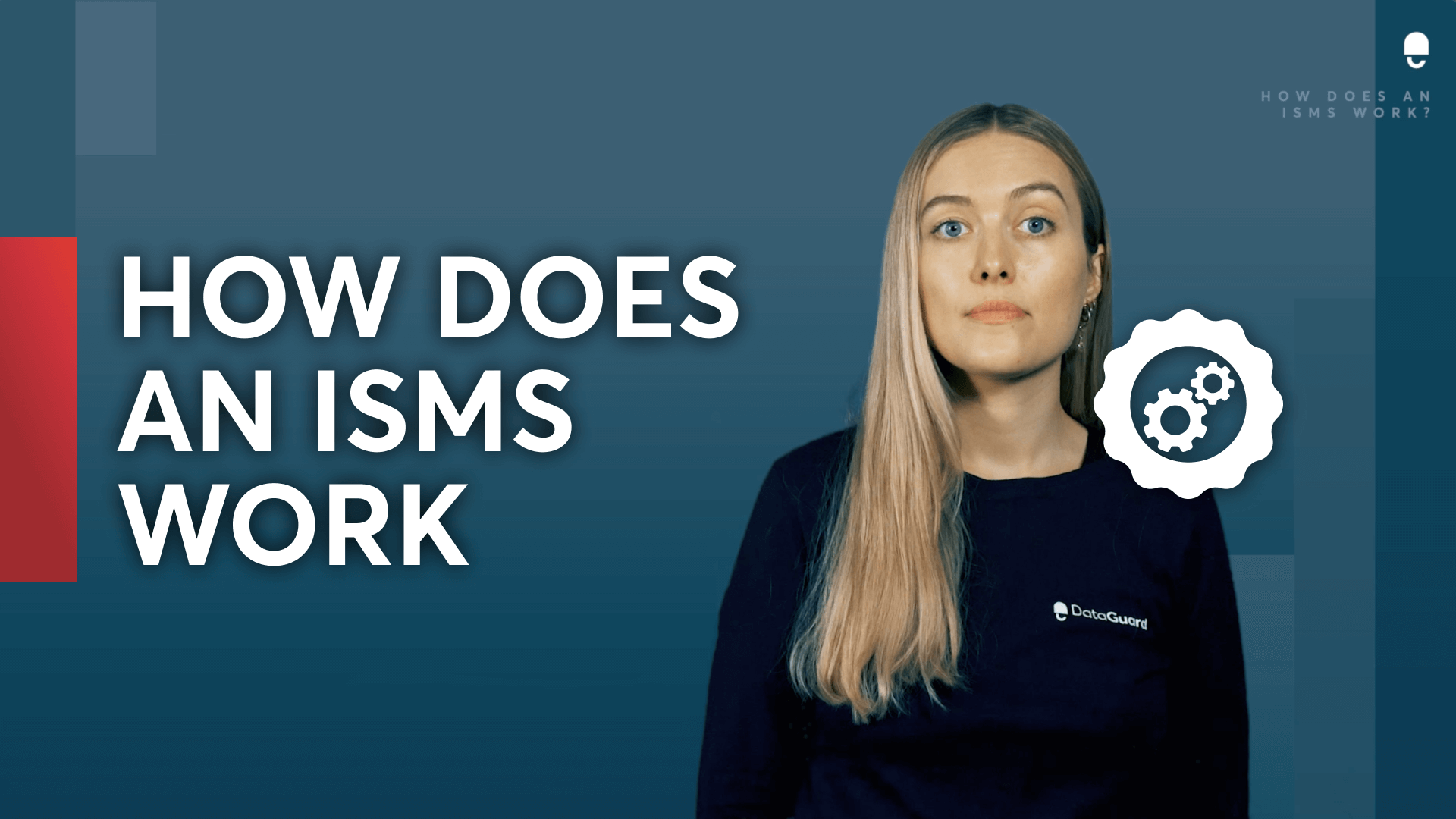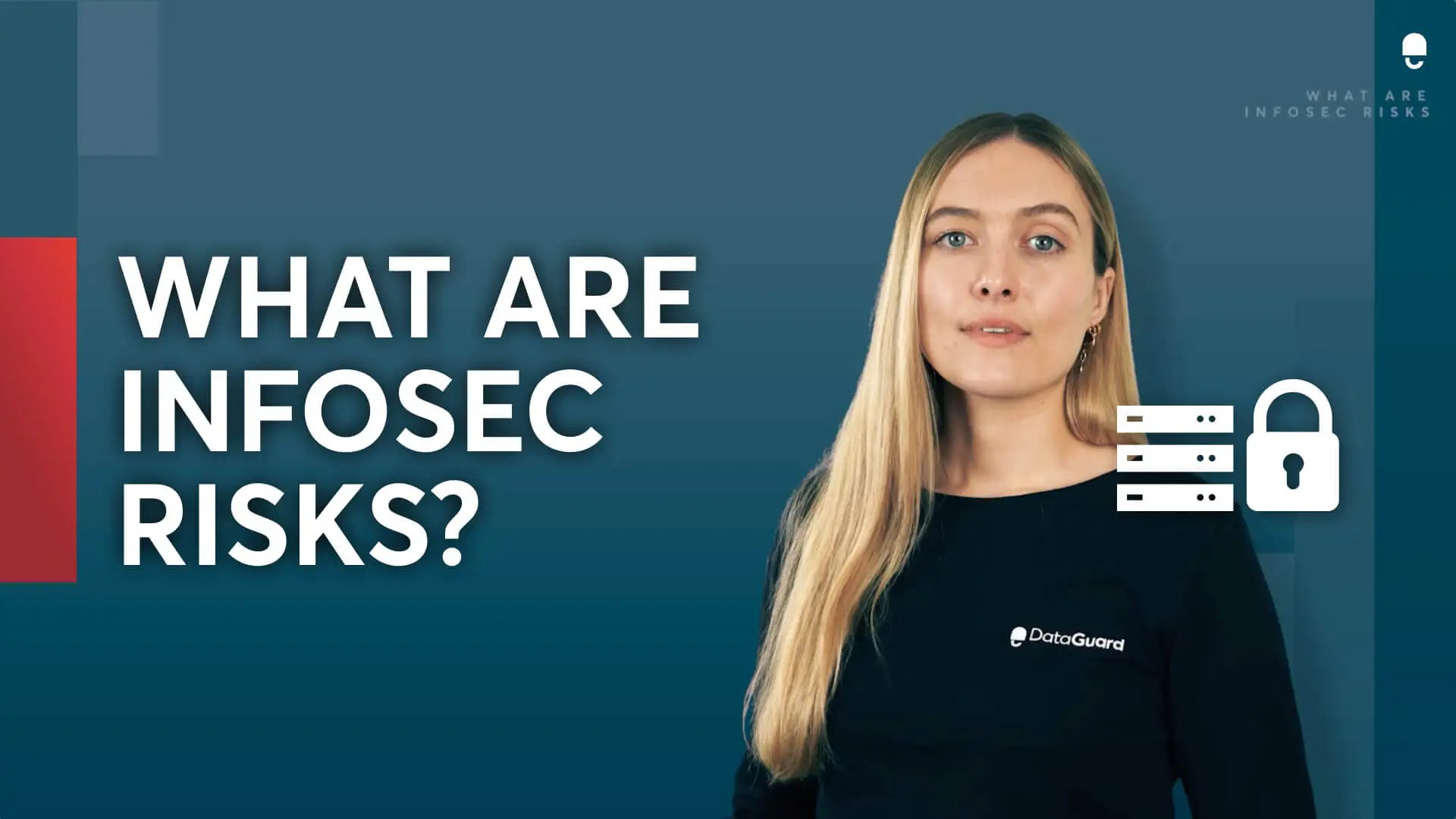This comprehensive article delves into the intricacies of due diligence and information security, equipping businesses with the knowledge and strategies to navigate these critical areas successfully.
Table of contents
- Navigating due diligence: the cornerstone of information security
- ISO 27001: the gold standard for information security
- Information Security Management System (ISMS): your shield against cyber threats
- TISAX®: the automotive industry's seal of approval for information security
- Understanding Risk: The Foundation of Risk-Based Information Security
- Key Takeaway
Navigating due diligence: The cornerstone of information security
Before embarking on a major business decision, such as a company sale, investor funding pursuit, or stock exchange listing, companies must successfully complete the comprehensive due diligence process.
This comprehensive evaluation scrutinises various aspects of the company, including its financial health, legal compliance, and, crucially, its information security posture.
Information security encompasses far more than just IT safeguards; it extends to the company's processes, personnel, and overall approach to data protection. The international ISO 27001 standard establishes a framework for implementing and managing an effective information security management system (ISMS).
Companies that achieve ISO 27001 certification demonstrate a high level of commitment to data protection, enhancing their reputation and earning the trust of potential partners and investors. Additionally, for organisations in the automotive industry, TISAX® approval serves as an equivalent to ISO 27001 certification, validating their adherence to stringent information security standards.
Due diligence: Unveiling the true worth
The term "due diligence" encapsulates the meticulous process of scrutinizing a company's claims regarding its value and associated risks. This comprehensive evaluation is typically conducted when an investor or potential acquirer expresses interest in the company, or prior to a stock exchange listing. The objective is to ensure that the company's representations accurately reflect its current standing and future prospects.
Unveiling the company's true picture: A deep dive into due diligence
Due diligence, a meticulous process conducted by experienced corporate lawyers or business consultants, delves into the heart of a company's operations, finances, and overall health. While the specific areas examined vary depending on the perceived risks involved, a comprehensive due diligence typically scrutinises a company's financial records, operational processes, asset values and liabilities, existing contracts, compliance with regulations, product development standards, supply chain integrity, and communication and information security.
In essence, due diligence serves as an impartial assessment, enabling investors, acquirers, and potential partners to make informed decisions based on a thorough understanding of the company's true standing. This comprehensive evaluation goes beyond mere financial health and legal compliance; it delves into the very fabric of the company, uncovering its strengths, weaknesses, and potential risks.
Due diligence is not a mere checkbox to be ticked off; it's a valuable tool that can help companies identify areas for improvement, enhance their risk management practices, and ultimately increase their value. By proactively addressing potential issues, companies can position themselves for success in the ever-evolving business landscape.
Whether a company is considering a sale, seeking investment, or exploring partnerships, due diligence provides invaluable insights into its true worth and potential. By undergoing a rigorous due diligence process, companies can not only attract potential partners and investors but also gain a deeper understanding of their own strengths and weaknesses, paving the way for continued growth and success.
ISO 27001: The gold standard for information security
While the term "information security" is often used interchangeably with IT security, its scope extends far beyond technological safeguards. It encompasses the security of all processes, business activities, and the individuals involved in an organisation's operations. This includes not only employees and management but also external parties such as suppliers and contractors.
In contrast to prescriptive standards, ISO 27001 provides a framework for organisations to assess and manage information security risks. It outlines the areas and objectives for risk assessment and mitigation, allowing each organisation to determine the appropriate depth of their audit and tailor their security measures to their specific needs. This flexibility ensures that information security practices are aligned with the organisation's overall risk profile and business objectives.
Business continuity management: A tale of two companies
Business continuity management (BCM) plays a crucial role in evaluating information security practices under ISO 27001. Comprehending the distinctive risks faced by each organisation is essential for implementing effective BCM strategies.
Consider two SaaS companies, both operating in the cloud:
Company A: Medical appointment scheduling SaaS
Company A provides a cloud-based SaaS platform for medical appointment scheduling. A cloud outage could lead to missed appointments, patient frustration, and potential revenue loss. While the financial impact may be moderate, the reputational damage could be significant.
Company B: Real-time logistics management SaaS
Company B offers a SaaS solution for real-time logistics management. A cloud outage would disrupt supply chains, delay deliveries, and potentially result in lost business. The financial impact could be substantial, and the reputational damage could be severe.
These contrasting scenarios emphasize the importance of tailoring BCM strategies to the specific risks faced by each organisation. A company's BCM plan should reflect the severity of potential disruptions and their potential impact on operations, finances, and reputation.
Key takeaways:
- Each organisation faces unique information security risks that require tailored BCM strategies.
- The severity of potential disruptions and their impact on operations, finances, and reputation should guide BCM planning.
- ISO 27001 emphasises the importance of risk assessment and mitigation, allowing organisations to adapt BCM measures accordingly.
Information security management system (ISMS): Your shield against cyber threats
In today's digital world, where information is the lifeblood of businesses, safeguarding sensitive data is paramount. An Information Security Management System (ISMS) acts as a company's armor, providing a structured framework for managing and protecting its information assets.
An ISMS is not a one-size-fits-all solution; it's tailor-made to each organisation's unique needs and risk profile. It encompasses a comprehensive set of policies, procedures, and controls that address the entire spectrum of information security, from physical and technical safeguards to human factors and business continuity planning.
The international ISO 27001 standard serves as the gold standard for ISMS implementation, providing globally recognised guidelines for developing, operating, and maintaining an effective ISMS. By adhering to these guidelines, companies can demonstrate their commitment to information security and gain a competitive edge in today's data-driven marketplace.
In essence, an ISMS is not just a compliance exercise; it's an investment in the future of an organisation. By proactively managing information security risks, companies can safeguard their valuable assets, protect their reputation, and ensure continued success in the ever-evolving digital landscape.
Key points:
- An ISMS is a customised framework for managing and protecting an organisation's information assets.
- An ISMS addresses the entire spectrum of information security risks, from technical safeguards to human factors.
- ISO 27001 provides globally recognised guidelines for implementing an effective ISMS.

In order to be able to play the desired video, you agree that a connection to the servers of YouTube, LLC, 901 Cherry Ave, San Bruno, CA 94066, USA is established. This transmits personal data (device and browser information (in particular the IP address and operating system) to the operator of the portal for usage analysis.
You can find more information about the handling of your personal data in our privacy policy.
Reaping the rewards of a certified ISMS
Companies that invest in a certified Information Security Management System (ISMS) reap a multitude of benefits, safeguarding their valuable assets and propelling their success.
Enhanced risk management: A robust ISMS equips organisations with a systematic approach to identifying, assessing, and mitigating information security risks. By proactively addressing potential threats, companies can minimise disruptions to their IT infrastructure, business operations, and overall reputation.
Boosted customer and partner trust: A certified ISMS instils confidence in customers and partners, demonstrating a company's unwavering commitment to data protection and privacy. This enhanced trust can lead to stronger customer relationships, increased brand loyalty, and expanded business opportunities.
Competitive edge: In today's data-driven world, information security is no longer just a compliance requirement; it's a competitive differentiator. Companies with certified ISMS stand out as trusted guardians of sensitive information, gaining a significant edge in the marketplace.
Compliance and regulatory assurance: An ISMS ensures compliance with industry regulations and legal requirements, particularly for organisations operating critical infrastructure. This compliance can mitigate potential legal and financial liabilities, providing peace of mind and operational continuity.
Streamlined due diligence audits: When companies embark on due diligence audits, a certified ISMS proves invaluable. The audit process becomes significantly more streamlined and efficient, saving time and potentially increasing the company's valuation.
Investment that pays off: The upfront investment in ISMS certification pays off in the long run. Companies experience reduced costs associated with data breaches, improved operational efficiency, and enhanced brand reputation, all of which contribute to sustainable growth and profitability.
In essence, a certified ISMS is not just a box to be checked; it's a strategic investment that safeguards an organisation's most valuable asset – its information. By proactively managing information security risks, companies can protect their reputation, foster customer trust, and drive long-term success in the ever-evolving digital world.
TISAX®: The automotive industry's seal of approval for information security
In the fast-paced and interconnected world of automotive manufacturing, safeguarding sensitive information is paramount. To ensure the highest standards of data protection, the Verband der Automobilindustrie (German Association of the Automotive Industry) developed TISAX®, a tailored information security standard specifically designed for the automotive industry.
TISAX® builds upon the foundation of ISO 27001, incorporating its core principles and adapting them to the unique needs of automotive manufacturers and their suppliers. While slightly less extensive than ISO 27001, TISAX® focuses on the specific information security requirements of the automotive industry, addressing the challenges faced by service providers and suppliers in this sector.
Car manufacturers demand that their business partners undergo regular audits and certifications as part of an information security assessment (ISA). TISAX® goes beyond the ISA requirements catalogue by introducing a secure mechanism for exchanging assessment results. This transparency eliminates the need for unnecessary cross-checking, saving time and resources for both manufacturers and suppliers.
Assessment on TISAX® results are recognised industry-wide, facilitating new supplier relationships and streamlining the evaluation process. This shared understanding of information security practices fosters trust and collaboration within the automotive supply chain.
In essence, TISAX® serves as the automotive industry's stamp of approval for information security excellence. By adhering to standards of TISAX®, suppliers demonstrate their commitment to safeguarding sensitive data, enhancing their reputation and gaining a competitive edge in this data-driven industry.
TISAX® and ISO 27001: Embracing a risk-based approach to information security
TISAX® and ISO 27001, two prominent information security standards, advocate for a risk-based approach to safeguarding sensitive data. This means that the assessment and optimisation of information security measures are not dictated by rigid rules or absolute specifications. Instead, the focus lies on carefully evaluating the specific risks faced by each organisation and taking proportionate measures to mitigate those risks.
Understanding risk: The foundation of risk-based information security
At the heart of the risk-based approach lies a thorough understanding of the potential threats and vulnerabilities that an organisation faces. This includes identifying the likelihood of each risk occurring and assessing the potential damage it could cause.
Consider the example of HR security. A corrupt employee with access to sensitive information poses a significant risk. The potential damage could range from financial losses to reputational damage. In contrast, an employee working in a non-sensitive role may pose a much lower risk, and the security measures implemented would reflect this difference.

In order to be able to play the desired video, you agree that a connection to the servers of YouTube, LLC, 901 Cherry Ave, San Bruno, CA 94066, USA is established. This transmits personal data (device and browser information (in particular the IP address and operating system) to the operator of the portal for usage analysis.
You can find more information about the handling of your personal data in our privacy policy.
Assessing risk in information security
Information security risk assessment is a crucial process for organisations to identify, analyse, and prioritise potential threats to their valuable data assets. By proactively evaluating the likelihood and impact of these threats, organisations can implement appropriate security measures to mitigate risks and safeguard their information.
A practical example of risk assessment
Consider a company's online e-commerce platform. A potential threat to this platform could be a phishing attack, where cybercriminals attempt to trick users into revealing their login credentials. To assess the risk of this threat, the company would consider the following factors:
Likelihood: How likely is it that a phishing attack will be successful? This depends on factors such as the sophistication of the phishing attack, the awareness of the company's employees, and the effectiveness of the company's security controls.
Impact: What would be the impact of a successful phishing attack? If cybercriminals gain access to customer login credentials, they could steal sensitive financial information, compromise customer accounts, or even disrupt the company's operations.
In this example, the company might determine that the likelihood of a successful phishing attack is moderate, but the impact could be severe. Therefore, the company would prioritise implementing stronger phishing awareness training for employees, adopting multi-factor authentication, and deploying stricter email filtering measures.
Using risk assessment for informed decisions
Risk assessment provides valuable insights for organisations to make informed decisions about their information security posture. By understanding the risks they face, organisations can:
Prioritise security investments: Focus resources on addressing the highest-priority risks to maximise the impact of their security investments.
Implement effective controls: Select and implement appropriate security controls that are tailored to the specific risks identified.
Monitor and adapt: Continuously monitor the effectiveness of their security controls and adapt their strategies as risks evolve.
Meet compliance requirements: Demonstrate compliance with industry regulations and standards that mandate appropriate risk management practices.
Enhance decision-making: Integrate risk assessment into their overall business decision-making processes to ensure that information security considerations are factored into strategic initiatives.
Risk assessment is an ongoing process, not a one-time event. Organisations should regularly reassess their risks as their business environment, technology landscape, and threat landscape evolve. By proactively managing information security risks, they can protect their valuable assets, safeguard their reputation, and ensure continued success in the ever-changing digital world.
Proportionate measures: Balancing security and efficiency
The risk-based approach emphasises the importance of proportionality. Security measures should be tailored to the specific risks faced by the organisation, ensuring that they are effective without being overly burdensome. For instance, requiring extensive background checks for all employees, regardless of their role, might be excessive and impractical.
In essence, the risk-based approach empowers organisations to make informed decisions about their information security posture, ensuring that their resources are directed towards the areas of greatest risk. By adopting this approach, organisations can effectively protect their valuable assets while maintaining operational efficiency.
Key takeaway: Elevating your business with certified information security
In today's data-driven world, information security is no longer just a compliance requirement; it's a strategic imperative that drives business success. Organisations that invest in a certified information security management system (ISMS), such as ISO 27001 or TISAX®, reap a multitude of benefits, positioning themselves as trusted partners and gaining a competitive edge in the market.
These certifications serve as a testament to an organisation's unwavering commitment to information security. They help fostering stronger relationships and opening doors to new business opportunities.
Moreover, certified ISMS significantly enhances a company's value during the due diligence process. The streamlined and efficient evaluation process associated with these certifications can drastically reduce the time and resources required, saving companies significant costs. This enhanced value, coupled with the expedited due diligence process, strengthens a company's negotiating power, making it an attractive partner for investors and potential Example of Risk Assessment acquirers.
In essence, investing in certified information security management systems is not just about compliance or risk mitigation; it's a strategic decision that unlocks a multitude of benefits, from enhanced reputation and customer trust to improved negotiating power and increased value. By prioritizing information security, companies can safeguard their future success in the ever-evolving digital landscape.










